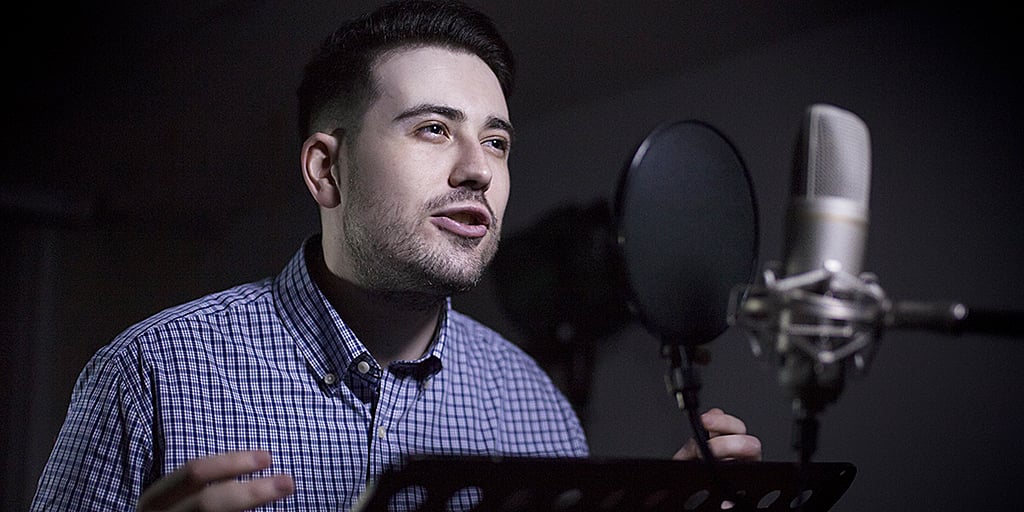
Podcasts start from a point of passion. Showrunners are enthusiasts or experts with a powerful desire to share information and experiences about their topic, business, or personal interest. For business owners, talking about issues, nuance, and details of a your products or services is a powerful way to connect with customers.
Reading a brochure is one thing, but hearing an actual person talk about it immediately adds personal impact. The human voice carries more than words—it carries emotion and veracity.
This year there are 25 English-language podcasting conferences being held around the world. Events with names like PodCon, NYCPodfest, and PodX are being held in Seattle, New York, and Nashville.
The only international podcasting event in Canada in 2019 is Podsummit III. It’s presented by Graphos in Calgary on June 22, 2019. If you’re thinking about podcasting, you should attend.
Graphos is sponsoring Podsummit III because we believe in podcasting. Podcasting forges powerful connections with the voice, and audio remains THE great untapped internet medium. But it’s catching up, which is why you need to attend Podsummit III.
My wife Caroline and I have a podcast called “My Beautiful Cyborg.” It follows the process and experience of Caroline’s gradual hearing loss until she was completely deaf—and came to hear again via a cochlear implant. As she likes to say, “January 28, 2018 was my last deaf day.”
Having hearing restored with a Cochlear implant isn’t your average experience. In creating the podcast, we simply wanted to keep family and friends in the loop with our hearing adventure. Our intended audience loved the podcast, and we discovered through emails that we were also connecting with people around the world who had questions about hearing, hearing loss, hearing aids, and cochlear implants. The first contacts came from China, then Germany, then Czechia.
We accidentally filled a void we didn’t even imagine was there. My Beautiful Cyborg has been the catalyst for speaking engagements, travel, and even research and development into how Cochlear implantees hear. All because we just wanted to share a story about hearing, in sound: a podcast. It’s a niche but highly engaged global audience that is interested and invested in our topic.
To put it another way: if the deaf can do a podcast about hearing, you can do a podcast about anything.
In the last blog post we talked about the difference between a podcast and radio: distribution. A podcast makes you a global broadcaster with a 24/7, always-on, global media property. With that kind of power and reach, why do so many business have reservations about getting into podcasting? Because they’re not podcasters. Yet.
Podsummit III organizers have paid close attention to the friction points that prevent people starting a podcast, or cause them to lose interest and abandon their project. Podsummit III provides you the essential skills to start a podcast, and the tools to refine and improve your existing podcast. Here’s a list of topics and information you’ll receive at Podsummit III:
- How to start a podcast
- Equipment and software to get started
- How to process audio
- Live production demonstration
- Episode planning/outlining/organization
- Putting ideas into words
- Vocal performance
- Forming a relationship with your audience
- Storytelling (how to organize your podcast)
- The two ways to listen to your podcast
- How to build your podcast
- How to promote your podcast
- How to liven things up for your audience
- How to breathe new life into your podcast
- Overcoming a slump in your show
- Polishing your show
The sooner you get your ticket for Podsummit III, the sooner you can start benefiting from the event. Yes, right now!

Here’s a quick list of things I do to prepare when I’m attending a conference:
- Start networking now. #podsummit is the hashtag on Twitter and Instagram. Make a list of who is interested and talking about podcasting. Use social media to “meet” other attendees before you go. It’ll make networking at the event that much easier since you’ll already know others.
- Arrive early, or stay late. I’m not a morning person. Notice how I didn’t even say “mostly” or “kinda.” Mornings? No. But if you’re one of those people who aren’t helpless kittens in the morning, think about showing up at the event early. The best time to get inside information is while organizers are setting up and tearing down. It’s mostly physical work, and organizers appreciate a little help. It’s an opportunity to chat about what you’re going to hear, or what you just heard. Lingering time is bonus time.
- It’s all about Objectives. Have objectives before you go attend Podsummit III. Do you need to focus on writing, delivery, production, equipment questions, or all of the above? Look at the event schedule and find out who is delivering the information you need most. Write a list of questions you need answered. If your list is all answered at the end of the day, that’s a win! If not, follow-up with the presenter during a break. When I am speaking at an event, I’m always surprised how apologetic people are when they ask a question. That’s what speakers are there for! Ask, because getting answers should be part of your objectives.
- Meet New People. I’m an extrovert by marriage (and profession). I’ll go as far as saying I’m an omnivert, but my happy place is in a quiet, cozy, dimly lit studio—listening. Even if you’re just traveling across town, you have a great opportunity to meet people who have podcasting in common. At Podsummit II in Edmonton last year, I met a guy doing a podcast about Viking myths, and someone else doing one about organizing and cleaning. Podcasting brings people together. Take advantage of the chance to meet interesting people with a common interest in sharing their interests.
- Cross-promote podcasts. If you have a podcast, you’re an expert on your topic. A podcast about hearing can cross-promote a podcast about story-telling, health, or even a legal advice podcast. Once you’ve met and discovered what other podcasters are doing, you can talk about and agree to promote each other’s podcasts. Cross-pollination is a fast-track to a larger audience.
- Create a post-event plan as part of your objectives for Podsummit III. A post-event plan includes reviewing the information you learned to “lock it in.” Read your notes, review social media, and write to speakers and other podcasters. If you meet corporate sponsors, reach out to them and thank them for providing support.
Podsummit III is about sharing the tools and ideas to create a successful podcast, or to make your existing podcast even better.

